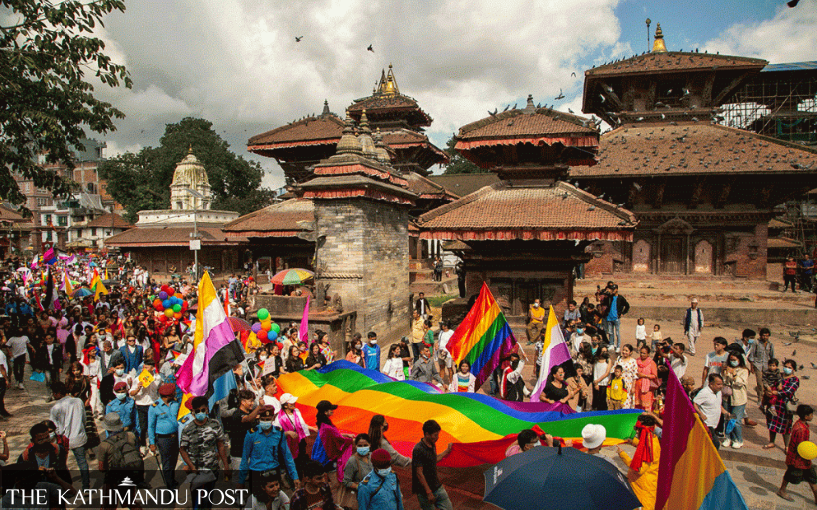The ongoing Nepal Investment Summit hopes to attract much-needed investment to the country. Taking part are over 1,700 potential investors from 55 countries. A total of 150 public and private projects are being showcased at the gathering. After two previous rather disappointing summits (in terms of realisation of pledged investments), we will have to wait a bit to see the outcome of this one. But there is one more promising avenue for Nepali economy. A week ago, Kathmandu hosted another vital gathering: The country’s first international LGBTIQ tourism conference. Whether or not Nepal can pull in big investments, it can certainly welcome more queer tourists and make big bucks: According to one estimate, the global spending power of the queer segment is around $4.7 trillion. Nepal is increasingly seen as a safe travel destination for LGBTIQ folks. This image has only been boosted by the successful marriage registration of Surendra Pandey and Maya Gurung, the first same-sex couple to be legally recognised in Nepal, in November 2023. It was only the latest in a series of legal interventions recognising the rights of people of all genders and sexual orientations.
As stakeholders have pointed out, ‘pink tourism’ will not just bring in foreign currency, it will also promote further inclusion and empowerment of the queer community. They will get good jobs too. Many such worthy initiatives are already underway. For instance, in order to cater to the tourists of the segment, the Nepal Tourism Board recently organised a trekking guide training for 25 individuals from the community. More queer-friendly businesses are opening up, and members of the community now head dozens of restaurants, travel agencies and hotels. All this makes Nepal easily the most LGBTIQ-friendly destination in South Asia. This is why it may be worthwhile for the country to explore multiple levels of engagement with the community, including in medical tourism. With no such facility available in Nepal, members of the Nepali transgender community are struggling to fund their gender affirmation surgeries abroad. If such surgeries could be arranged in Nepal, not only would it benefit the native transgender community but also attract other trans folks who want to undertake such procedures at a friendly location.
It’s not just a matter of economics or the rights of the queer community either. With each progressive step of government agencies, NGOs and the private sector, Nepalis at large have also been forced to confront their prejudices and to widen their outlook on gender and sexuality. This opening up of our minds will further boost the country’s democratic culture. The prolonged economic slump has bred a kind of cynicism among us, which is also reflected in the over 1,500 people who are leaving the country to work and live abroad every single day. Yet in a world where parochialism has become the norm, Nepalis can be proud of the growing openness to new ideas and views, their homeland a welcome refuge for everyone. Nepal has the basics covered to welcome many more queer tourists. Now it is a matter of promoting the country right and building the facilities to cater to the community.

